Program
More so than ever, the nation’s government must create and leverage diversity and inclusive environments that encourage each individual and team to provide ideas critical to innovation. It is through the process of dialogue that workplace culture is transformed and sustained. The Power of Diversity and Inclusion Dialogue has three goals for its participants:
- Empowered Engagement
- Deepened Understanding
- Mutual Accountability and Respect
In order to support these goals, the Power of Diversity and Inclusion Dialogue is grounded in an evidence-based,
structured curriculum in a deliberate order to attract participant engagement in a process that ensures psychological safety and shared perspectives that create openness, trust, empathy, and mutual respect.
Session Topics
The Power of Diversity and Inclusion Dialogue is a classroom, virtual learning experience and requires participation in ten sessions that are two hours each. The first half of our training is designed to provide substantive education and dialogue that, when modeled correctly, can promote a climate of belonging and equal voice in the workplace.
The Journey is the second half of our training and consists of four sessions. This experience creates the space for renowned individuals to share their journey of challenges and revelations that define their personal and professional contributions in government, sports, industry, politics and arts and entertainment.
It is during these sessions that participants are inspired and equipped to triumph over personal and professional impediments through the power of voice.
- Confront assumptions, perceptions, and stereotypes that impede personnel effectiveness
- Examine currently held beliefs
- Identify behaviors that promote mutual respect for divergent perspectives
- Broaden view of what diversity and inclusion is and what it means
- Share perspectives and facilitate a deeper understanding of diversity and inclusion issues
- Personal development and challenge your own thinking through self-reflection
Structure
Each session consists of a cohort group of 10-12
participants to ensure group intimacy for honest and
productive dialogue. Participants represent a wide range
of federal departments and agencies as well as cohorts
within a single agency. Registration closes once a cohort
is established.


Facilitators
The Power of Diversity and Inclusion Dialogue is home to
a select group of prominent experts and thought-leaders
from higher education, think tanks, foundations, and
select industries.
We are proud to have acclaimed diversity and inclusion
expert, Dr. J. Bruce Stewart, former director of Diversity
and Inclusion, Office of Personnel Management, as our
facilitator for the Fall 2020 session.
Certificate
The Institute for Federal Leadership is proud to offer the Certificate in Diversity & Inclusion Dialogue. Supported by
Georgetown University, the Certificate is awarded to individuals who complete the requirements of ten consecutive
sessions and the requirements therein.
The Certificate in Diversity & Inclusion Dialogue acknowledges participants raised awareness of diversity and inclusion
issues and the skills achieved to execute action planning.
Strategic Leadership Competency
Present and future diversity practitioners and senior executives must develop new insights and competencies for dealing with new challenges of leading in a changing environment. This task requires practitioners to move from diversity awareness and sensitivity to leadership effectiveness and measurable mission results. Skills for leading at the strategic level are more complex than those for leading at the tactical and operational levels. (delete the next sentences here). The session will cover the following objectives:
- Assessthe strategic diversity framework – Has Diversity Changed?
- Review and update value proposition – the Mission Case.
- Evaluate the difference between strategy and strategic planning.
- Examine internal communication to support Diversity & Inclusion.
- Understand the influences of organizational change – the Practitioner Viewpoint.
- Assess the agency climate for Strategic Diversity.
- Create accountability measures for Diversity and Inclusion – Revisited.
Understand better how sustaining Strategic Diversity and Inclusion impacts mission success.
Strategic Communications Competency
Diversity and Inclusion initiatives should be supported by cross-cutting communication messaging and support tools to involve and inform Federal employees, the military, supervisors, leaders, and external stakeholders in supporting D&I. Diversity communication also reflects how organizations behave, perceive and think about diversity and inclusion principles.
A well-designed communication plan with support tasks clarifies the diversity message and identifies stakeholders who have an interest in growing the diversity initiative. However, agencies must be willing to identify communication needs and the methods used to reach out to constituents. Communication planning establishes channels, procedures, and expectations that will keep stakeholders informed of the status and progress of diversity and inclusion behaviors. These efforts will sustain lasting culture change which is organic and values driven. This interactive session will include the following Learning Objectives:
- Engage internal and external stakeholders.
- Understand how to brand the agency’s Diversity and Inclusion program.
- Understand what is Active Communication.
- Understand what is Passive Communication.
- Advance the practice of “listening” to others and to relevant channels and sources.
- Build a competitive D&I Communication Plan.
Assess the effectiveness of the D&I Communications strategy
D&I Measurement Competency
Many organizations subscribe to a prevailing myth that when it comes to the impact of diversity on organizational performance, there’s “no way to measure this stuff.” However, forward thinking D& I experts disagree. In fact, they claim “if it moves, you can measure it!” There are sound accomplished recommendations, metrics, and statistics to prove it. The Institute’s D&I Measurement class offers the following Learning Objectives:
–Experience a deep dive into “big data” guided by OPM and other agencies D&I measurement requirements and outcomes.
–Learn traditional and nontraditional ways of using data to more effectively implement D&I strategies and programs.
–Learn how to use compelling stories accompanied with well-analyzed data for greater insights into D&I.
–Understand the dynamic and successful ways to engage with others who are responsible for data driven agency performance.
Change Management Competency
Without understanding the practice of Change Management, there is a significant risk of failure when implementing D&I strategies and initiatives. Successful change requires the adoption of new mindsets, processes and technologies in order to reach D& I targets and achieve benefits. The Learning Objectives of this class are as follows:
–Understand cultural orientation and its effect on managerial decisions, behaviors and expectations.
—Understand how certain “aspects” of management behaviors can affect success with employees.
–Understand how to reframe existing practices to reach D&I goals
Building Coalitions Competency
Research indicates that one important behavior has a significant impact on D&I—collaboration. D&I practitioners and senior managers must work cooperatively with others to effectively lead teams and groups. In modern organizations, those charged with leading D&I efforts must work across organizational boundaries to achieve shared goals. This work requires building coalitions internally and externally to achieve common goals. Building coalitions establishes alliances, allows the sharing of best practices and breaks down barriers.
Current and future D&I practitioners and senior managers must demonstrate competencies that address barriers and resistance to and even fear of developing partnerships and collaborations. Skills for building coalitions at the strategic level is complex. Class content is also guided by the following Learning Objectives:
- Develop strategic partnerships and coalitions and execute D&I initiatives in a meaningful way
- Engage in dialogue and conversation with D&I partners in a “win-win” way.
- Evaluate self-interest, competition, lack of trust and turf issues in building coalitions.
- Assess who gets in and who stays out?
- Assess Who is truly in charge? Where and Why?
- Assess agency climate for building & sustaining coalitions.
- Develop leveraging tools and skills to enhance pipeline development for diverse partnerships.
- Appraise accountability for Diversity and Inclusion – Revisited.
- Determine how to sustain the D&I Coalition, or should we?
Business Acumen Competency
Business Acumen is a critical competency for all D&I professionals. In this class, attendees will address the integration of D&I into the agency’s business strategies. Case studies will feature the rationale for making D&I core to the business of the agency. Other foci include identifying the specific processes and decision points embedded in D&I and determining how different constituents across the business can work together to achieve D&I goals. The class will also address how integration helps to eliminate barriers that may get in the way of creating an inclusive culture. Class content is guided by the following Learning Objectives:
- Explore approaches for integrating D&I into the broader business functions of the agency.
- Identify how D&I strategies are integrated into Agency decision points, key processes and management strategies.
- Evaluate how to collaborate with key c
- Develop and articulate the D&I business and mission case and ROI.
Identify ways to measure the impact of D&I on agency outcomes.
Featured Books
The Institute for Federal Leadership announces it’s 2018 & 2019 Distinguished Author, Judge Robert L. Wilkins, United States Federal Court of Appeals.
An acclaimed work, the Long Road to Hard Truth: The 100 Year Mission to Create the National Museum of African American History and Culture provides a rich historical journey of the trials and triumphs faced by African Americans in pursuit of citizenship in the United States.
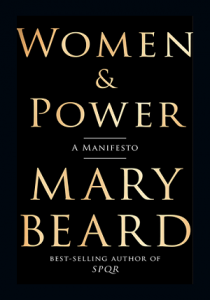
WOMEN & POWER
BY MARY BEARD
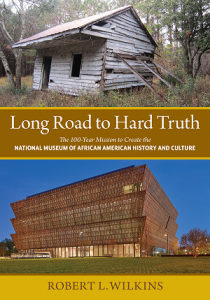
LONG ROAD TO HARD TRUTH
BY MARY BEARD
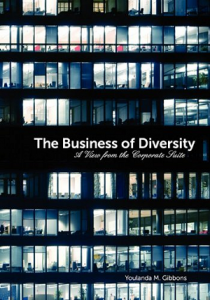
THE BUSINESS OF DIVERSITY
BY YOULANDA M. GIBBONS

THE MAGIC KEY
BY RUTH ENID ZAMBRANA
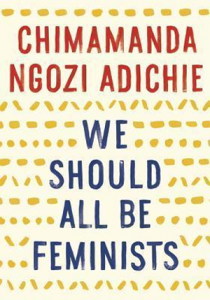
WE SHOULD ALL BE FEMINISTS
BY CHIMAMANDA NGOZI ADICHIE
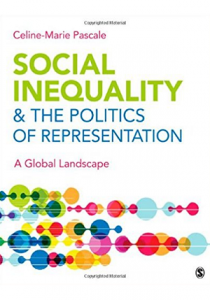
SOCIAL INEQUALITY & THE POLITICS OF REPRESENTATION
BY CELINE-MARIE PASCALE
The Advisory Council for the Institute for Federal Leadership in Diversity & Inclusion takes seriously the opportunity to recommend books for our readership. These books are intended to inspire and spark the imagination of those committed to D&I principles and practice.












